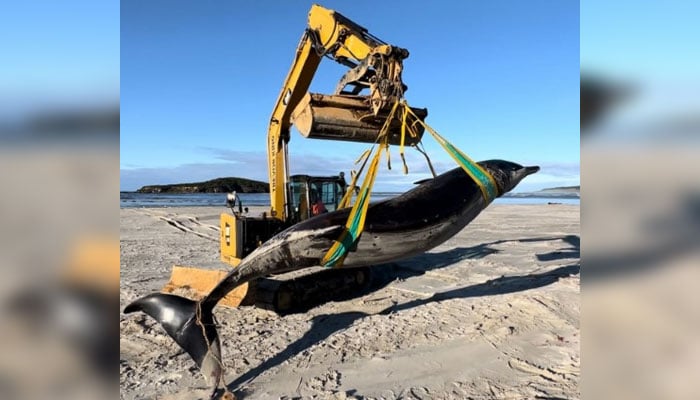
[ad_1]

A rare event unfolded on a New Zealand beach as the country’s conservation authority revealed Monday that the world’s rarest whale had washed ashore, The Guardian reported.
The approximately 16-foot-long whale was discovered on July 4 near Dunedin in the South Island.
The Department of Conservation (DOC) revealed that since the 1800s, only six specimens of this species have been known to science.
After inspection, the agency and experts from the national museum Te Papa determined that the mammal appeared to be a male spade-toothed whale.
DOC posted a video of the whale on their official Instagram page.
After giving some background about the rare whale, the organisation wrote: “We are saddened to find this one has washed up deceased, but this will be a great opportunity to learn more on how we can help this cryptic species.
“From a scientific, cultural and conservation point of view, this is huge. We will work in partnership with Te Rūnanga ō Ōtākou on next steps.”
Additionally, DOC Coastal Otago operations manager Gabe Davies said: “Spade-toothed whales are one of the most poorly known large mammalian species of modern times. From a scientific and conservation point of view, this is huge.”
According to a press release from the DOC, the species is “so rare next to nothing is known about them.”
“It is important to ensure appropriate respect for this taoka (treasure) is shown through the shared journey of learning, applying mātauraka Māori (Māori knowledge) as we discover more about this rare species,” Te Rūnanga ō Ōtakou chair Nadia Wesley-Smith said.
Genetic samples had been sent for analysis, but it may take several weeks or months for the DNA to be processed and a final species to be confirmed.
The whale is in cold storage to preserve the remains until the next steps had been decided, DOC said.
[ad_2]
Source link